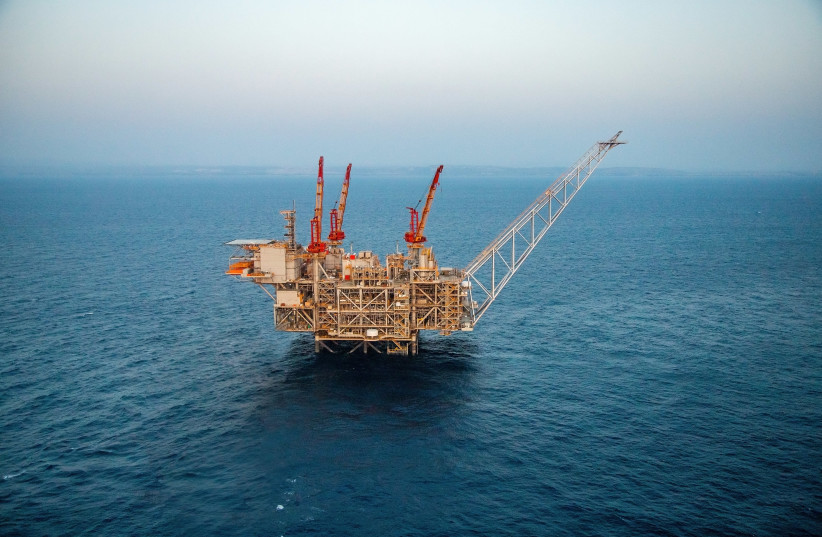The current conflict has created a new situation: Hamas has attracted widespread condemnation and is understood to be a threat to civilized nations. The current conflict in the Middle East creates both a need and an opportunity to establish an overarching goal for the day after the war.
This goal needs to be a strategic, political, Middle Eastern global goal based on a new interest or, even better, a new mutual interest. Without a new interest, the Gazan people are unlikely to change their ways.
What could that new interest be? History shows us that economic interests are most effective after a war. The Marshall Plan in Europe after World War II and the “Reverse Course” under Gen. Douglas MacArthur in Japan are typical examples.
In this case, the obvious economic interest is natural gas. Gaza has offshore gas in the Mediterranean, known as the Gaza Marine field. But Gaza would need significant help, perhaps involving Saudi Arabia, a fellow Sunni Arab territory.
Gaza’s gas background
Gaza Marine is a natural-gas field off the coast of the Gaza Strip. The Gaza Marine field is located about 36 km. offshore at a depth of 610 meters. The field was discovered in 2000 by BG (British Gas) Group, and it is estimated to contain more than one trillion cubic feet of natural gas.

For many years after discovery, security and economic negotiations delayed its development. Two of the main parties involved in the negotiations are the Israel Electric Corporation and Egypt, which seek to convert the natural gas into liquefied natural gas to export. (BG Group was also involved.)
Although it is legally under the jurisdiction of the Palestinian Authority as a result of the Oslo Accords, Israeli forces have prevented Palestinians physical access to the offshore region and its resources.
Clearly, gas exploitation would be a huge bonus for the Gazan economy.
Israel’s position
It is tragic to note that as recently as June 18, the Israeli government gave preliminary approval for Gaza gas development, which makes the October 7 massacre even more deplorable.
The Prime Minister’s Office said in a statement: “In the framework of the existing efforts between the State of Israel, Egypt and the Palestinian Authority (PA), with emphasis on Palestinian economic development and maintaining security stability in the region, it has been decided to develop the Gaza Marine gas field off the coast of Gaza. Israel seeks to maintain the security and diplomatic interests of the State of Israel on the matter.”
Post-surrender prospects
MacArthur realized that only when the Japanese emperor, Hirohito, surrendered unconditionally, which he did on August 15, 1945, would the Japanese people follow suit. Only following this surrender, during the seven years (1945-1952) of Japan’s postwar occupation and reconstruction, did the Japanese people undergo the economic transition that led them into their modern era.
Similarly, despite many differences between the two cases, the Hamas leadership should be persuaded to surrender unconditionally so that the Gazan people follow suit.
Then a carefully selected new leadership (not Hamas), with Israel’s approval and international/OECD support, should undertake the renewal of Gaza Marine gas exploitation. Gaza would be allowed to join a regional trade alliance involving Saudi Arabia, Egypt, the US, the UK, and others. Egypt would play a prominent role because it now supplies liquefied natural gas to Europe instead of Russia due to the Ukraine war.
Everyone involved would benefit. This is how to give peace a chance.
What else is needed?
A new legal order is needed. MacArthur drastically changed Japanese law after 1945 to make it follow US precepts. The EU has united 27 countries under a uniform economic system. More recently, the OECD has made tax-reform recommendations regarding e-commerce, which is now being adopted in some 140 countries. The Middle East should be no exception.
There is a PA legal system apparently based on Sharia law, but a regional gas alliance might spur additional down-to-earth legislation. This would probably be a 20-year project, starting soon.
Israel does not yet have diplomatic relations with Saudi Arabia. It also needs to maintain security and military restraint over the Gaza Strip to avoid any possibility of a Hamas revival. Above all, regional relationships would need to be agreed upon. Also, while gas is less polluting than coal, it may one day be out of favor for environmental reasons.
Some may ask whether this is like giving Gaza more Qatari money? No, this is like the Marshall Plan once Nazi Germany was defeated.
To sum up: A gas economic alliance and reformed local legal system may be a good strategy goal for the US and Israel to aim for after the war. A myriad of details would need to be agreed upon, presumably in stages. But with courage, creativity, and goodwill, it can be done.
reuvengal@sni.technion.ac.il; leon@hcat.co
Col. (ret.) Reuven Gal, former chief psychologist of the IDF and deputy national security adviser of the National Security Council, is a senior research fellow at the Shmuel Neaman Institute for National Policy Studies.
Leon Harris is a CPA and tax specialist at Harris Consulting & Tax Ltd.
